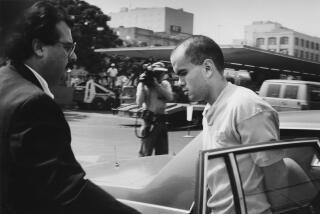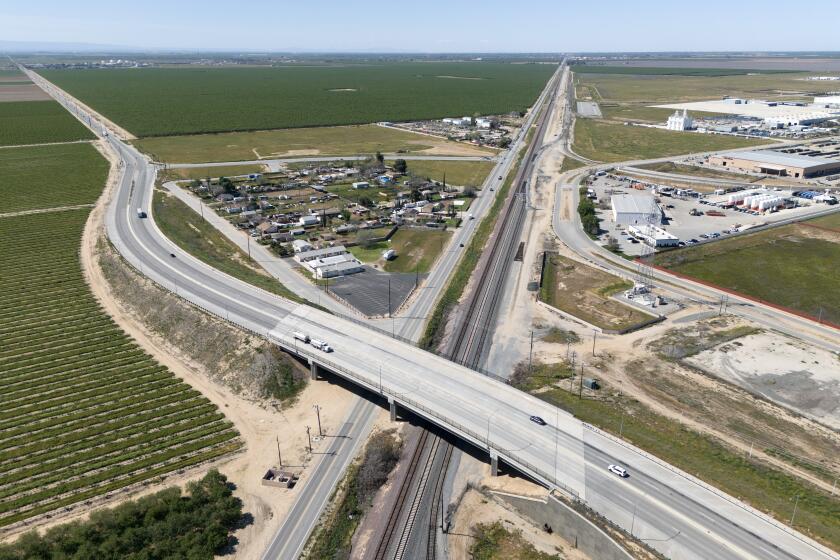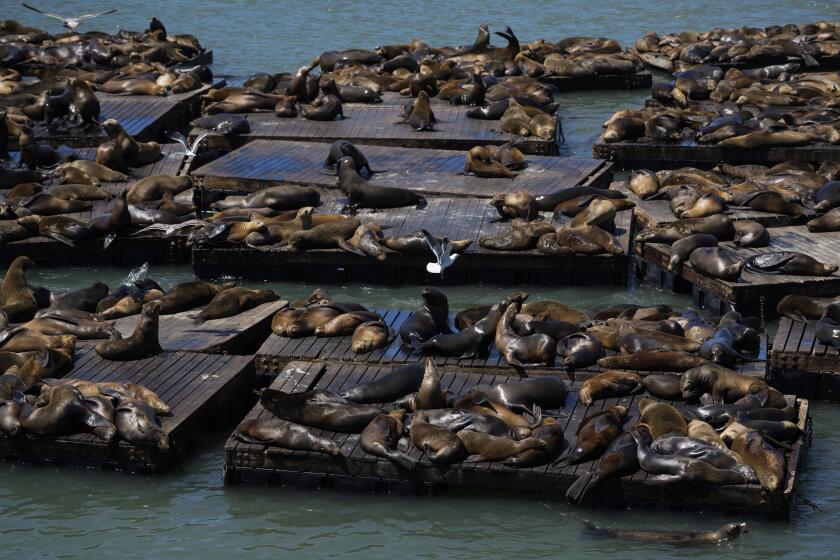The Unanswered Question
No bold new vision of the future for Los Angeles was created in Thursday’s debate between Mayor Tom Bradley and City Councilman John Ferraro, just as none of the second-string arguments that have masqueraded as issues were demolished. Except for some studied insults, the exchanges were entirely in keeping with the low-key styles of the candidates.
In short, what you had been hearing is what you heard again as the two leading mayoral candidates squared off in the debate sponsored by the League of Women Voters.
So were the voters served? Yes, insofar as debates offer capsule summaries, head to head, of candidates’ positions. Yes, because debates allow voters to judge for themselves the degree of command that candidates have of the issues and processes that make the wheels of government go round. But, no, because no commercial or public television stations broadcast what apparently will be the only debate of the mayoral campaign. The people who attended the debate were like the folks who go to Dodger Stadium: They already knew who they were rooting for.
But if you don’t have cable television (which, to its credit, carried the debate), or weren’t by your radio, what you missed was an hour-long comparison of Bradley’s and Ferraro’s views on how to finance more police, on whether Metro Rail or light rail is the transportation answer of the future, on why Occidental Petroleum Corp. will be allowed to drill in Pacific Palisades after years of mayoral opposition, and on Bradley’s future political plans. There were no surprises.
Bradley watched with a continually bemused expression as his challenger did what challengers must do: Attack his opponent’s record. Each accused the other of flip-flopping on key issues. Each tried to throw the other’s past statements back into his face. Neither got rattled. Ferraro concentrated on what the mayor has not done in his 12 years in office and on whether 12 years are too much. Bradley, with the luxury of a strong lead in the polls, could talk of the 12 years of “peace and harmony” under his leadership.
The question that voters should concentrate on in the remaining three weeks of the campaign went largely unanswered Thursday night: How is the city going to address the challenge of a rapidly changing population?
Vietnamese, Korean, Japanese, Chinese, Mexican, Salvadoran, black, white, Armenian, Iranian: A cosmopolitan city both enriches and confounds its government. Whoever holds the vision, whoever can best answer how these groups can mesh and mold a city in which all can live in decency and of which all can be proud, will deserve the votes of Los Angeles.
More to Read
Start your day right
Sign up for Essential California for news, features and recommendations from the L.A. Times and beyond in your inbox six days a week.
You may occasionally receive promotional content from the Los Angeles Times.






